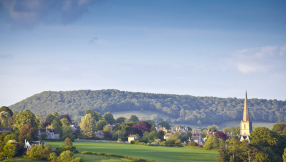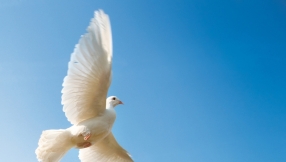Church risks complicity in climate change, warns theologian
This is the message of a provocative new book by Paula Clifford, Head of Theology at Christian Aid, who recently served a year-long secondment to Lambeth Palace as Special Adviser to the Archbishop of Canterbury on Climate Change.
'Angels with Trumpets: The Church in a Time of Global Warming' is published by Darton, Longman and Todd this week. In it Dr Clifford draws heavily on the book of Revelation to provide a theological critique of the church’s approach to climate change – and finds the actions of the Christian community to date less than adequate.
"The science of climate change is not in dispute. Christians cannot close their eyes to it – for indifference is as dangerous as denial," she says. "Instead, we must look at what ‘Love thy Neighbour’ really means at a time of global warming.
"Climate change is a touchstone issue of injustice – and raises profoundly uncomfortable moral questions for those of us who live in economically developed countries," she says.
"Those people who have done the least to cause climate change suffer the most, as carbon emissions from the developed world wreak havoc with the lives of the poor in developing countries.. If we choose to go on protecting our current privileged lifestyles at the expense of both our fellow human beings and the world around us, then that truly is sinful."
Dr Clifford calls on the church to speak with a prophetic voice and to mobilise the global Christian community in lobbying international decision makers on more environmentally-friendly laws.
Her book takes issue with climate change deniers, including former Chancellor of the Exchequer Nigel Lawson and Christopher Monckton, former science adviser to Margaret Thatcher, as well as those who say whatever happens to the planet must be God’s will.
She uses relational theology to examine our response to climate change, arguing that there is a oneness, an interconnectedness between people, creation and God.
Sin, she says, lies in the breakdown of such relationships, revealed in the unjust distribution of resources creating a chasm between rich and poor, and the damage inflicted on the natural world by human-induced climate change.













